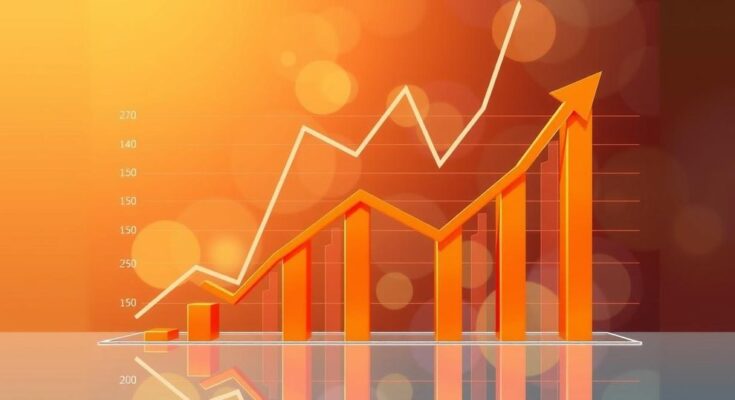Argentina’s inflation is expected to rise in March following a 2.4% increase in February. Key factors include seasonal pressures and declining consumer spending, which has dropped by 10.2%. The basic food basket rose significantly, with many families struggling to escape poverty. Disparities exist between national and Buenos Aires City inflation, posing concerns for economic stability.
Argentina’s National Institute of Statistics and Census revealed that the National Consumer Price Index (IPC) reached 2.4% in February, prompting analysts to project an increase in March, potentially surpassing the 2.9% core inflation rate observed the previous month. Despite President Javier Milei’s administration boasting about accomplishments concerning inflation, experts point out that these occurred alongside a significant drop in consumer spending, which declined by 10.2% last month.
Several seasonal factors, including the start of the school year and rising transport costs, are contributing to ongoing price pressures. Economists have indicated that uncertainties surrounding the currency and continued economic adjustments are exacerbating the inflationary landscape. Notably, nationwide consumption has decreased for 15 consecutive months, particularly impacting sales of soft drinks, alcoholic beverages, and household goods.
In February 2025, a year-on-year contraction of 9.8% was recorded, alongside a notable drop in supermarket and self-service store sales. Nevertheless, analysts observed a deceleration in the rate of decline since October 2024. The basic food basket experienced a 3.2% increase in February, the highest in six months, with the poverty-line basket increasing by 2.3%. Consequently, a typical family now requires AR$ 1,057,923 (approximately US$ 881.6 at the unofficial “blue” rate) monthly to escape poverty.
According to Indec’s report, February’s inflation rose to 2.4%, up from January’s 2.2%, accumulating a 12-month increase of 66.9%, with prices rising by 4.6% year-to-date. The most significant round of increases was in Housing, Water, Electricity, Gas, and Other Fuels (3.7%) due to housing rent and utility costs, followed by Food and Non-Alcoholic Beverages (3.2%), primarily fueled by increasing meat prices.
Conversely, Household Equipment and Maintenance exhibited only a 1% rise, while Clothing and Footwear increased by merely 0.4%. Regional inflation rates varied, with Patagonia (3.2%), Cuyo (2.7%), Northwest (2.6%), and the Pampas (2.5%) surpassing the national average; however, Greater Buenos Aires (2.2%) and the Northeast (1.9%) fell below it. In contrast, Buenos Aires City experienced a drop in inflation to 2.1%, largely due to a 4.8% decline in tourism-related services, but faced a higher year-on-year inflation rate of 79.4%. Furthermore, unemployment in Buenos Aires rose by 50% within a year, revealing broader economic challenges.
The Central Bank of Argentina’s latest report forecasted inflation rates of 2.3% in February and 2.2% in March, indicating a departure from previous downward trends in inflation rates. These figures highlight the complexities of the Argentine economy in navigating inflationary pressures while experiencing significant declines in consumer spending and enduring challenges to public welfare.
In conclusion, Argentine inflation is projected to accelerate in March, following a 2.4% rise in February, compounded by factors such as seasonal influences and ongoing economic instability. Despite government claims of progress, significant consumer spending declines and a gradual erosion of purchasing power underscore the economic difficulties faced by citizens. Additionally, disparities between national and Buenos Aires City inflation levels raise further concerns about regional economic challenges. Addressing inflation remains critical for restoring economic stability and protecting the populace from poverty.
Original Source: en.mercopress.com




